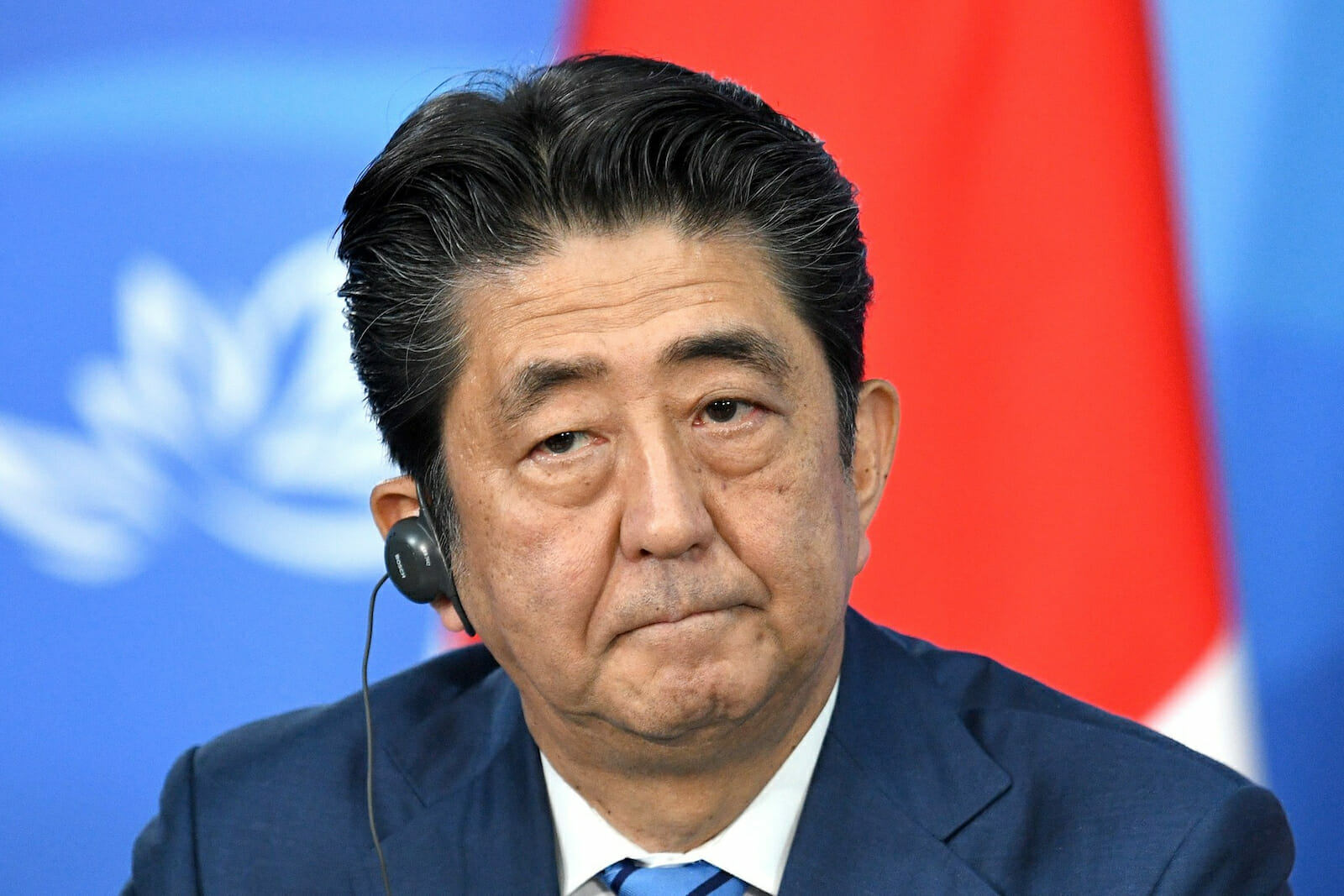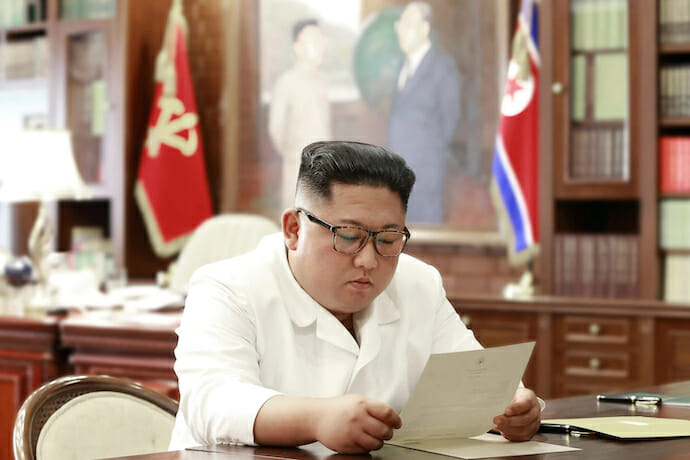
Abe’s Failed Diplomacy: Why Japan’s Role as a Peacemaker Remains Limited 75 Years after World War Two
Two weeks ago I traveled to Chicago and attended the Japan America Society of Chicago’s 89th anniversary celebratory dinner with one of my close mentors, Lyric Hughes Hale, an East Asia specialist who has followed economic and political affairs in China and Japan for over 30 years. Before the dinner, however, I turned on Bloomberg and the following headline appeared on the screen: “Pompeo: Iran rejected Abe’s outreach for diplomacy.” This headline prompted me to recall a conversation that I had with Lyric a few weeks beforehand when the two of us had discussed how Japanese Prime Minister Shinzo Abe’s gesture of visiting Iran may usher a new era of Japan’s constructive role on the international stage as a mediator—in this case, for the United States.
A few hours later, the keynote speaker, Marc Knapper, the Acting Deputy Secretary of State for Japan and Korea, stated that U.S.-Japan relations is currently at its zenith and that the definition of the new Reiwa era is grounded on the friendship between the United States and Japan. As Marc mentioned the word “friendship,” I immediately thought of the close ties that Abe has shared with Trump since the U.S. presidential election in November 2016.
To recap, Abe was the first head of state to personally congratulate then President-Elect Trump –he made a quick stop to Trump’s penthouse in New York City barely a week after the election. Moreover, Abe even deemed Trump as a “trustworthy leader” and exuded a great amount of confidence at the start of their personal friendship going forward. After Trump’s inauguration in January 2017, Abe was one of the first world leaders to convene a summit with Trump. It is worth noting that Abe scored a major political victory when, at their first joint press-conference, Trump not only reaffirmed the United States’ commitment to Article 5 of the U.S.-Japan Treaty of Mutual Cooperation and Security signed in 1951, but that the United States would also defend the Japan-administered Senkaku Islands should China make any attempts to violate Japan’s territorial sovereignty.
Several months later at the 72nd session of the UN General Assembly in September 2017, in light of Otto Warmbier’s tragic death and North Korea launching ballistic missiles over Japan, Trump proclaimed that the menacing “Rocket Man” posed a great threat to the current international order and the sovereignty of some of the U.S.’ greatest allies in the Indo-Pacific region, including Japan. After the groundbreaking Singapore Summit on June 12th, 2018, Abe expressed his gratitude to Trump for bringing up the Japanese abduction issue to Kim Jong-Un, but shortly thereafter, North Korea signaled warnings to Japan that they should not meddle in the denuclearization talks.

Earlier this year, Trump announced in the White House Rose Garden that Abe nominated him for the Nobel Peace Prize, though the Japanese government abstained from commenting on that matter. Lastly, about a month ago, Trump became the first world leader to visit the newly-enthroned Emperor Naruhito and Empress Masako in late-May. What is quite intriguing is that according to Trump, it was Abe, not Emperor Naruhito, who formally invited him to make this state visit in the first place. This comes to show not only that Abe truly values the rapport that he has with Trump, but that he sees Trump as a major guarantor of Japan’s peace, prosperity, and most importantly, security.
With all of this to consider, I ask myself two questions: As Trump’s personal affinity for Kim Jong-Un deepens even more than it already has, will Trump and Kim Jong-Un plan to convene a 3rd summit? If so, could this rapport between Trump and Kim provide Abe with the opportunity to meet with the North Korean autocrat in-person? Before he departed for the Middle East on June 23rd, Secretary of State Mike Pompeo confirmed that the Trump administration is more sanguine about the prospects of reopening negotiations with North Korea. Moreover, this past weekend, the North Korean state-run newspaper, Rodong Sinmun, even inserted a picture of Kim Jong-Un reading a letter that he received from President Trump, which was supposedly written on the 1st anniversary of the Singapore Summit. Despite this political impasse between the U.S. and North Korea, through the recent exchange of letters, it appears that Trump may have signaled his personal readiness to resume high-level talks that could lead to a 3rd summit before the end of 2019.
But the other question remains: Is Abe capable of yielding the same results? As of now, even if Trump and Kim are communicating with one another, I am overtly pessimistic that Abe will be able to sit face-to-face with Kim Jong-Un, primarily because North Korea has most, if not all, of the bargaining chips weighing against Japan, particularly with the unresolved abduction issue. While Abe has offered to initiate diplomatic discussions with Kim Jong-Un “unconditionally,” the Hermit Kingdom recently excoriated Japanese Foreign Minister Taro Kono, particularly because he, akin to Abe, has consistently championed a firm “maximum pressure” campaign against North Korea.
Additionally, the indelible memories of the Japanese occupation of the Korean Peninsula, along with both unresolved wartime labor and territorial disputes, have resulted in Japan’s diplomatic tensions with South Korea, though South Korean President Moon Jae-in has expressed his willingness to convene a bilateral meeting with Abe at the upcoming G-20 summit in Osaka. Ultimately, North Korea is desperate for sanctions to be lifted indefinitely, and it does not want to be placed in a position where it has to hold itself accountable for gross human rights violations because it may jeopardize the regime’s survival.
At this point in time, while Abe’s diplomatic endeavors to Iran may not have been successful, it is of paramount importance that he treads carefully in relying on the U.S. to act as some sort of mediator between Japan and the DPRK, especially if the Japanese abduction issue remains a top priority for his administration. That being said, Trump is “predictably unpredictable”—I especially did not expect, albeit I am relieved, that he walked away from making any sort of a joint declaration with Kim at the Hanoi Summit that could have otherwise led to some sort of sanctions relief. Maybe, just maybe, if Trump is given the opportunity to mediate on Abe’s behalf, he can produce results that are tangible enough to the point where Kim Jong-Un would agree to initiate personal diplomacy with Abe but as I stated earlier, I do not see this happening in the foreseeable future.

